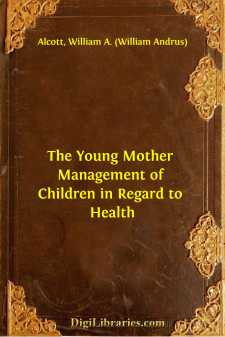Categories
- Antiques & Collectibles 13
- Architecture 36
- Art 48
- Bibles 22
- Biography & Autobiography 813
- Body, Mind & Spirit 141
- Business & Economics 28
- Children's Books 12
- Children's Fiction 9
- Computers 4
- Cooking 94
- Crafts & Hobbies 4
- Drama 346
- Education 46
- Family & Relationships 57
- Fiction 11826
- Games 19
- Gardening 17
- Health & Fitness 34
- History 1377
- House & Home 1
- Humor 147
- Juvenile Fiction 1873
- Juvenile Nonfiction 202
- Language Arts & Disciplines 88
- Law 16
- Literary Collections 686
- Literary Criticism 179
- Mathematics 13
- Medical 41
- Music 40
- Nature 179
- Non-Classifiable 1768
- Performing Arts 7
- Periodicals 1453
- Philosophy 64
- Photography 2
- Poetry 896
- Political Science 203
- Psychology 42
- Reference 154
- Religion 513
- Science 126
- Self-Help 83
- Social Science 81
- Sports & Recreation 34
- Study Aids 3
- Technology & Engineering 59
- Transportation 23
- Travel 463
- True Crime 29
The Young Man's Guide
Categories:
Description:
Excerpt
INTRODUCTION.
The young are often accused of being thoughtless, rash, and unwilling to be advised.
That the former of these charges is in a great measure just, is not denied. Indeed, what else could be expected? They are thoughtless, for they are yet almost strangers to the world, and its cares and perplexities. They are forward, and sometimes rash; but this generally arises from that buoyancy of spirits, which health and vigor impart. True, it is to be corrected, let the cause be what it may; but we shall correct with more caution, and probably with greater success, when we understand its origin.
That youth are unwilling to be advised, as a general rule, appears to me untrue. At least I have not found it so. When the feeling does exist, I believe it often arises from parental mismanagement, or from an unfortunate method of advising.
The infant seeks to grasp the burning lamp;—the parent endeavors to dissuade him from it. At length he grasps it, and suffers the consequences. Finally, however, if the parent manages him properly, he learns to follow his advice, and obey his indications, in order to avoid pain. Such, at least, is the natural result of rational management. And the habit of seeking parental counsel, once formed, is not easily eradicated. It is true that temptation and forgetfulness may lead some of the young occasionally to grasp the lamp, even after they are told better; but the consequent suffering generally restores them to their reason. It is only when the parent neglects or refuses to give advice, and for a long time manifests little or no sympathy with his child, that the habit of filial reliance and confidence is destroyed. In fact there are very few children indeed, however improperly managed, who do not in early life acquire a degree of this confiding, inquiring, counsel-seeking disposition.
Most persons, as they grow old, forget that they have ever been young themselves. This greatly disqualifies them for social enjoyment. It was wisely said; 'He who would pass the latter part of his life with honor and decency, must, when he is young, consider that he shall one day be old, and when he is old, remember that he has once been young.' But if forgetfulness on this point disqualifies a person for self enjoyment, how much more for that which is social?
Still more does it disqualify us for giving advice. While a lad, I was at play, one day, with my mates, when two gentlemen observing us, one of them said to the other; 'Do you think you ever acted as foolishly as those boys do?' 'Why yes; I suppose I did;' was the reply. 'Well,' said the other, 'I never did;—I know I never did.'
Both of these persons has the name of parent, but he who could not believe he had ever acted like a child himself, is greatly destitute of the proper parental spirit. He never—or scarcely ever—puts himself to the slightest inconvenience to promote, directly, the happiness of the young, even for half an hour.
He supposes every child ought to be grave, like himself....






